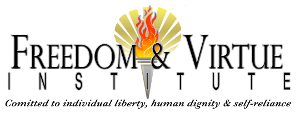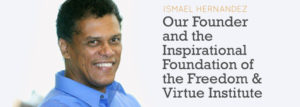Why Do We Exist as an Institute?
This was a question posed to me recently. There is always a need for introspection and for pondering. We all benefit from taking time to evaluate and for bringing back to mind certain things that we find valuable. In the Christian liturgical tradition, we have a rich concept called anamnesis, which has a tie to remembering.
Anamnesis is a Greek word that means “a calling to mind,” from the roots ana-, “back,” and mimneskesthai, “to recall” or “to cause to remember.”
There is an essential difference between merely remembering, for example, the death of Julius Caesar in Shakespeare’s tragedy, and the “remembering” of Christian worship. No one celebrates as a living person the anniversary of someone dead, like in the case of the late emperor. The Christian affirmation is bolder. The anamnesis, namely the liturgical memorial, renders the event truer than when it happened historically. It is not just a memory of a long last event that is no more—one that faded into the nothingness of a past that will never come. No, in the case of Christ’s sacrifice, it is bringing to the present what has already been there all the way. In other words, it is more true and real for us who relive it “according to the Spirit,” than it was for those who lived it “according to the flesh,” before the Holy Spirit revealed the full meaning to the Church.
We are not only celebrating an anniversary but a mystery. It is Saint Augustine the one who explains the difference between the two things best. In the celebration “by way of anniversary,” nothing else is required – he says – than to “indicate with a religious solemnity the day of the year in which the recollection of the event itself takes place,” in the celebration by way of mystery (“in sacrament”), “not only is an event commemorated but it is also done in a way in which its meaning is understood and it is received devoutly.”
It is that kind of “remembering” the one I want to apply to the question of why the Freedom & Virtue Institute came to exist. I want all of us to always have present as a perennial reality that our Institute exists because we hold to a non-negotiable understanding of the human person as unique and unrepeatable, made in the very image of God as a moral agent—capable of transforming his or her life by the choices the person makes. Our Institute is not about running programs and doing good acts but about proclaiming the special calling of God for every person.
We respond to a need to offer guidance to communities about this truth about the person. We exist to provide model projects that show people that freedom works and that the human person has such radical capacity of self-realization. We exist to contribute to a redefinition of what is poverty alleviation by way of anamnesis, by way of commemorating, celebrating, and living out what it means to be human.
I thank each and every one of you for joining us in that sacred task.



